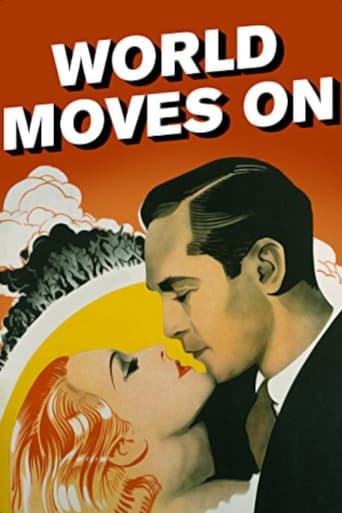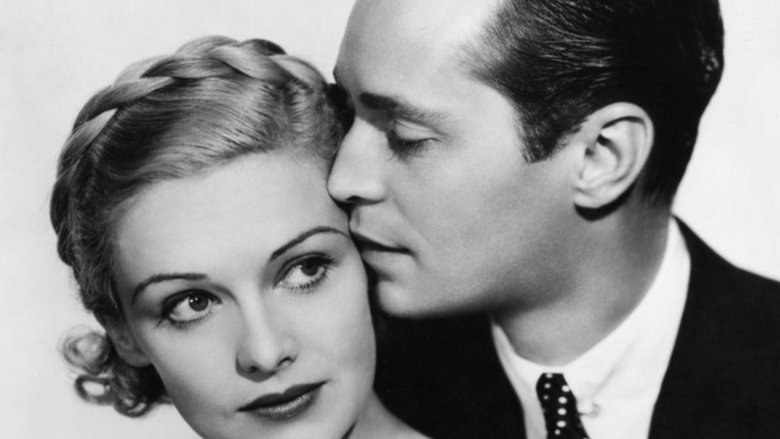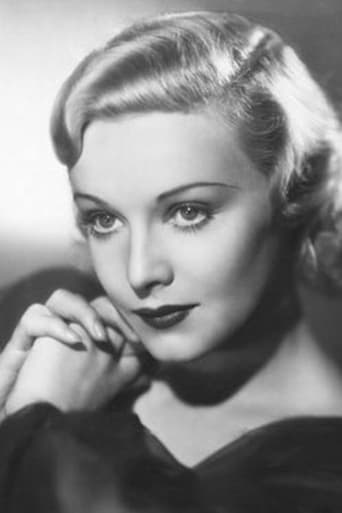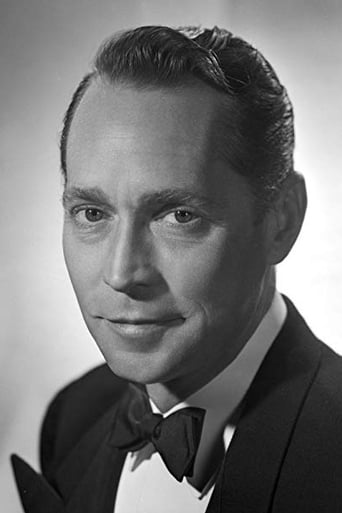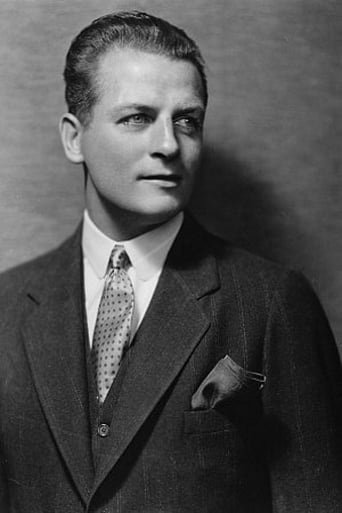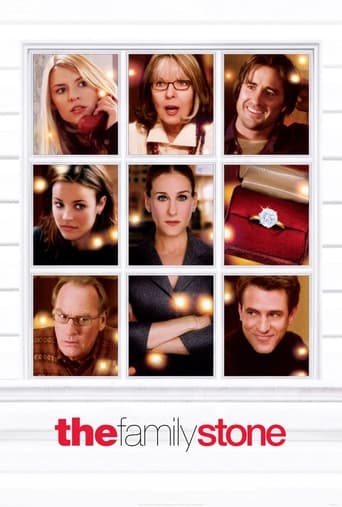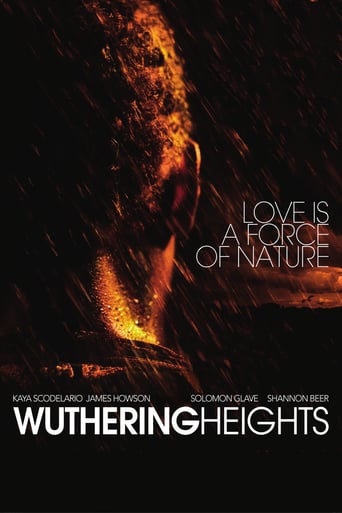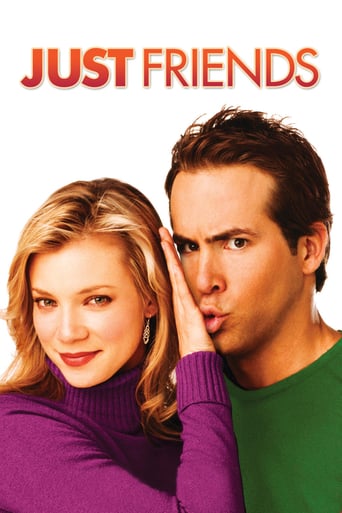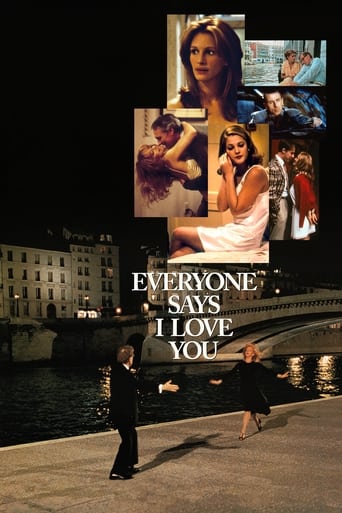The World Moves On (1934)
Two families, cotton merchants in England and America, with branches in France and Prussia swear to stand by each other in a belief that a great business firmly established in four countries will be able to withstand even such another calamity as the Napoleonic Wars from which Europe is slowly recovering. Then many years later, along comes World War One and the years that follow, to test the businesses.
Watch Trailer
Cast


Similar titles
Reviews
Best movie of this year hands down!
At first rather annoying in its heavy emphasis on reenactments, this movie ultimately proves fascinating, simply because the complicated, highly dramatic tale it tells still almost defies belief.
It's an amazing and heartbreaking story.
The film never slows down or bores, plunging from one harrowing sequence to the next.
Until I actually watched it, I had never heard of "The World Goes On". The name of director John Ford was what called my attention, although I was already familiar with its stars, Madeleine Carroll and Franchot Tone, because I had watched both in 1935 films, respectively "The 39 Steps" and "Mutiny on the Bounty". The story is about two families that are partners in the cotton business. It all starts in 1825, when Richard Girard (Tone) becomes partner of Mary Warburton's (Carroll) husband, but falls for her. She comes back to England and never sees him again, but it comes that, 89 years later, their great-grandchildren, with their same names, get to know each other and fall in love. Mary leaves an almost-groom and marries Robert during the war, in which he participates as a soldier in France's Foreign Legion. What comes is the many changes the business faces during and after the war, with its owners, like Richard's cousins, each in one different country.Almost all the film is a regular historical drama, but near the end it becomes unforgettable, because it perfectly predicts World War II. Talking about a war after it happened is very easy, but mentioning it before it starts is the cleverest thing movies could have done. The sequence of images even shows some of the countries who were later involved in the conflict, like Germany, Italy, England and Japan. If WWII hasn't happened, this end would be a huge flaw and would be deleted in further releases. But it happened, and being able to foresee it in 1934 is, at least, amazing. Of course, no one can pass without noticing Dixie (Stepin Fetchit) and the horrible black stereotype. It was certainly a funny character in the 30s and it would also be today, considering his messes, if he wasn't shown as a feeble-minded. This is a sin not only John Ford committed in that time, but maybe we can forgive him of it and let ourselves be touched by the final image of this surprising film.
There is one bit of dialog that I feel needs to be revisited. The husband says "Are you ready dear?" to his wife before she drops him off at a train station. Her response: "Of course dear, I've been ready for over an hour." This, which is a statement that has never been uttered again by a wife whilst getting ready to be somewhere, and the character Dixie played by Stepin Fetchit (it's surprising how offensive his character plays almost 80 years after this movie was made), are the only two memorable parts in this multi-generational tale directed by John Ford. I don't mean to trivialize this great artists' work, as he earned every accolade ever thrown his way, but this is a hiccup in a nearly flawless career. There are lessons to be learned here about avarice and lust for power, but they're sort of brushed over, because, as it turns out it's difficult to tell a story that spans 100 years in under 2 hours. Just remember to put those who love you and have stuck by you first and you don't need to spend the time seeing this. Rating 16/40
This 1934 movie is largely unknown and considering it was directed by John Ford this may seem surprising .Yet even quite exhaustive surveys of his work either omit references to this movie entirely or else give it only a passing mention.Now that I have seen it I feel that this is not really surprising after all .It is bombastic ,muddled and confused ,with a -for me -unacceptable pacifistic line .It is the product of an isolationist mind set and I found it morally repugnant .Thankfully ,it is not very good and so it is possible to dislike it on artistic grounds as well.In form it is a family or dynastic saga ,split into a number of eras .It opens in 1825 in New Orleans as the family of a dead fabrics baron assemble for the reading of his will .The estate is split between branches of the family in the US -as represented by Franchot Tone -,England ,France and Germany .The rest of the action is this segment consists of Tone killing a ,man in a duel for insulting Madelaine Carroll.She and Tone have a mutual attraction but she is engaged to someone else and the affair is not consummated .The movie then moves forward to Europe immediately before World War 1 .The family gathers for a dynastic wedding .Tone and Carroll re-appear ,both playing descendants of the people they portrayed in the opening section of the movie.There are hints -conveyed by their response to a particular piece of music -that they have some kind of "deja vu" connected with their ancestors previous relationship but this potentially intriguing theme is never pursued .War breaks out and the family splits on national grounds .Tone joins the French Foreign Legion to take up arms against Germany but others respond in less sensible ways.Carroll defies the orders of the government and refuses to make munitions (an act of treason which bizarrely Ford seems to agree with)while a key member of the French side of the family joins the priesthood as a gesture against the war .The last part of the movie takes place in the 1920's .Tone is now a tycoon and an absolute megalomaniac driven by greed and a lust for power.The crash of 1929 sees him reappraise his life and values and take a "peace ,love and understanding ,man" approach to life .There are some good things about the picture .The scenes of wartime action ,without recourse to graphic violence ,do depict the horrors of war well but overall this is a sprawling mess of a movie .The episodic structure and the obvious striving after "significance "allied to a propensity to preach at the audience make it tedious .The last 10 minutes is essentially a lightly dramatised and sententious pacifist tract and as wishy washy as such farragoes of nonsense invariably are .One section is particularly offensive ,It involves newsreel footage of Hitler ,Mussolini and Japanese militarists and the British navy .Now ,Ford was an Anglophobic jerk (albeit one who could be a genius with the right story and actors at his disposal)but surely even a blinkered Irish nutter should have realised that to lump the British in with that bunch of lunatics was over-egging the pudding a tad .That decision was not the product of woolly thinking so much as feeble mindedness-the kind of oaf who thinks owning a U2 album makes them an expert on politics in general and "the troubles"in particular.No it doesn't -it makes you a musical illiterate easily parted from her/his cash by a bunch of pompous bores with guitars The acting is indifferent ,the racial stereotyping in the Stepin Fetchit role is insulting but above all I cannot tolerate a movie that responds to the rise of European and Asian dictators by advocating nonsense like appeasement and lionising treasonable factory ownersThis movie is pernicious tripe
Starting in the Civil War South like an across-the-generations romance in the manner of SMILIN' THROUGH, this stilted drama then slogs through World War I and the Great Depression like an American CAVALCADE. John Ford effectively showcases the luminous Madeleine Carroll [including a QUEEN CHRISTINA-like moment of gazing out to sea], but otherwise directs with little commitment to the material. Franchot Tone conveys zero chemistry with his leading lady, so he just goes through the motions, while Ford favorite Stepin Fetchit works his offensive "shuffling darkie" routine, but in Paris. The screenplay seems especially turgid since the situations are arbitrary and reveal little about the characters. Despite an occasional imaginative touch, this all makes for a long 107 minutes.

